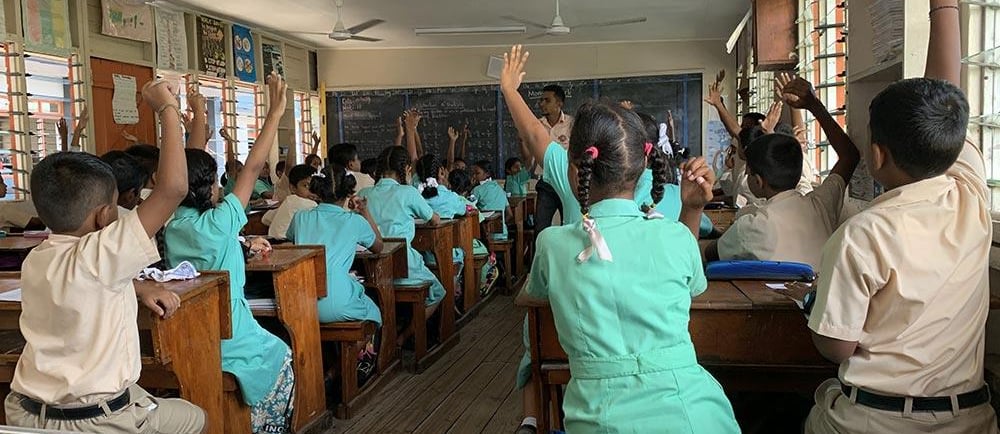Fiji’s Year 8 Pass Rates Fluctuate, Minister Calls for Urgent Education Reform
FIJI NEWS


The Ministry of Education has raised concerns over the ongoing challenges in Fiji’s education system, as the Year 8 exam results show a 57 percent pass rate over the past three years.
The Minister highlighted critical gaps in student performance in subjects such as English and Mathematics.
Over the past three years, English had a national pass rate of 57 percent, and Mathematics recorded a national pass rate of 41 percent.
This year, the national pass rate for the exam reached its highest at 69 percent. In contrast, the lowest recorded pass rate was noted in 2022, with 62 percent.
The Minister mentioned that they are strictly monitoring the heads of schools that have fallen under the "Hope" category for the past three years, and a circular has been sent regarding this.
He further added that school visits are being conducted, and the progress of students in these Hope schools and Follow-up schools is being monitored.
The Minister highlighted that a total of 7,914 students from rural areas sat for the exam, achieving a pass rate of 66 percent, while 11,054 students from urban areas sat for the exam, achieving a pass rate of 71 percent.
Radrodro shared that they are prioritizing curriculum reviews and targeting interventions to address these issues.
Minister Radrodro stated that there is a pressing need to adapt the curriculum to educational requirements, fostering critical thinking and problem-solving abilities.
He added that the ongoing review of the curriculum will ensure its relevance to the 21st century and better align it with the needs and interests of students.
He also stated that factors contributing to the variability of results in the 2024 provisional Year 8 examinations, compared to previous years, include the misalignment of the curriculum with student needs and interests, overcrowded classrooms leading to reduced individual attention and support for students, ineffective school management, weak leadership, insufficient planning, and inadequate monitoring of academic performance.
The Education Minister has identified several student-related factors contributing to educational challenges.
These include insufficient academic preparedness, with students entering Year 8 lacking foundational skills in essential subjects like mathematics and literacy.
Additionally, there is a noted lack of motivation and interest in learning, as well as limited understanding of the significance of education.
Behavioral issues, classroom disruptions, and a general lack of discipline among students and stakeholders further complicate the situation.
Attendance problems are prevalent, with irregular school attendance attributed to illness, family obligations, or disinterest.
Parental and family influences also play a role, as many parents are not actively engaged in their children's education, failing to monitor homework or participate in school meetings. Furthermore, there is a noticeable absence of supervision regarding students' schoolwork at home.
Lastly, there is an urgent need to address educational concerns related to curriculum reviews and modifications to meet evolving needs, alongside improving strategies for teacher recruitment and retention